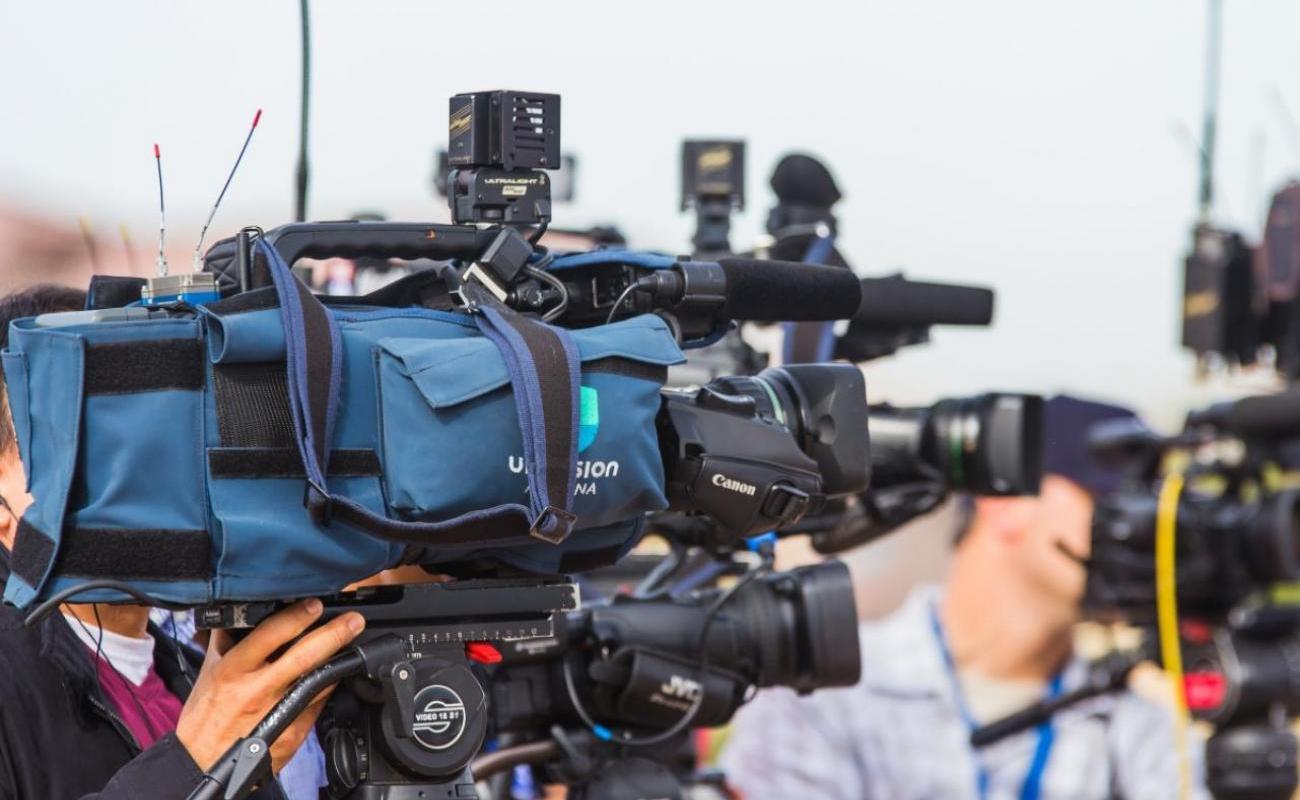‘I’m waiting to be arrested’: Russian ‘fake news’ law targets journalists
Police arrest investigative reporters to stop bad press about Russian military and war against Ukraine

The veteran investigative reporter had just published an explosive report: 11 members of the Russian National Guard from his home region of Khakassia had refused to fight in Ukraine, he said, and the military was hiding information about their unit’s casualties from the public.
The report matched others about refusenik soldiers and reinforced a narrative that the Russian government desperately wanted to suppress: that the invasion was stalling and Russian troops were ill-prepared to fight.
In an effort to stop the bad press, the hunt for enemies like Afanasyev intensified. “They are trying to find the sources,” Afanasyev wrote in a text message days before his arrest. “While I’m writing, I’m waiting to be arrested.”
He had already seen an order from the prosecutor demanding a legal review of his article and he expected far worse to come. “They’ve already fired the [soldiers] and there’s a real hunt for us too,” he wrote.
Arrests across Russia
On 13 April, police made arrests in three cities spread across the country, under a new law criminalising “fakes” about the Russian army.
Afanasyev was detained in Siberia, a mayoral aide allegedly running a Telegram account was detained in Elista in the North Caucasus, and in the Moscow region, Sergei Mikhailov, the founder of the LIStok weekly newspaper, was arrested.
The synchronised arrests suggested a new coordinated campaign targeting regional journalists, especially those who had published information about Russian losses in the war.
Overall, 28 cases have been reported under the “fakes” law, which was signed by Vladimir Putin last month, according to OVD-Info, which monitors Russia’s legal system. Afanasyev faces up to 10 years in prison.
“Mikhail wrote an article about the national guardsmen and now he is being punished for it,” said his lawyer, Vladimir Vasin. “His position is ‘I did my job! I couldn’t do anything else’, that’s what he told me.”
The crackdown has made it even harder for Russian soldiers who have refused to fight in the “special operation” – Russia’s term for its war – to go public. Some reports suggest there are nearly 1,000 such cases.
Pavel Chikov, the chair of the Agora human rights group, said this month the group was fielding cases from 17 cities and “everyone is complaining about pressure, threats of criminal prosecution”.
“They’re more afraid than I am,” said a lawyer from another region in touch with soldiers who had refused to fight in Ukraine. “For them, it is scarier than taking part in the special operation.”
‘They want to make me suffer’
On the night of his arrest, Afanasyev and his wife, Elena, had been hoping to celebrate their anniversary, but he had been held up at work. When Elena answered a knock at the door, an officer with a warrant entered, followed by men in masks and camouflage, and then her husband in handcuffs.
“They said to hide the kids in another room so that they don’t get in our way because it’s unpleasant,” Elena said. “I hugged my husband tightly; the kids couldn’t stay in the room, his son ran out crying and called for his father. Misha took him in his arms.”
“I asked him, ‘Misha, they will just detain you for 48 hours and then they will release you, right?’ He reassured me: ‘My cat, everything will be all right, don’t worry … I’ll be home soon.’”
Afanasyev is one of the best-known journalists in Siberia, a driven and aggressive reporter who runs long cross-country trails in his time off. He independently manages Novy Fokus, a committee to protect journalistsand has defied court summons, beatings and death threats to report on issues of corruption and human rights abuses.
“He’s a journalist hero for Khakassia,” said Stanislav Ugdyzhekov, a friend who has known him for more than 20 years. “He got involved in very complex questions. He fought with bandits. And I know they were bandits because they were jailed for banditry. He fought with the state organs. He exposed some bad people in the government.”
Afanasyev had paid for that deal in years of problems, including libel charges in 2009 brought because of his criticism of the Russian government’s response to an explosion at the country’s largest hydroelectric plant that year.
“I thought these 10 years of criminal persecutions were behind him,” said Elena. “He’s a respected person around the world, and in Khakassia. I couldn’t imagine that we could have raids and all this. It was a normal evening.”
To quit or go silent
Afanasyev has been placed in custody for the next two months as investigators build their case against him.
The lawyer, Vasin, said he had met Afanasyev on Wednesday at a pre-trial detention centre. Afanasyev had a shaved head, he said, and had been through three interrogations, three house searches and an arrest in the past seven days.
“Mikhail feels a bit better than in the first days,” said Vasin. “At first he was subdued, lost. He didn’t quite believe that he could be imprisoned for his words. Not just for words, but for journalism.”
There has not been a successful defence against the “fakes” law yet. And at least four investigators had been assigned to the case, suggesting it will go to trial.
“There is only one way for journalists to defend themselves from these accusations and laws and that is to quit journalism,” said Vasin. “Or to shut up.”
